Forschungsgruppen
Bernien Lab - Quantenwissenschaft Atom für Atom
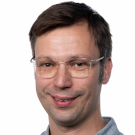
Das BernienLab studiert die Quantenphysik, indem sie große Quantensysteme aus einzelnen Atomen in optischen Pinzetten zusammensetzen. Diese Plattform eignet sich ideal sowohl für die Erforschung... Read more …
Ferlaino Lab - Dipolare Quantengase
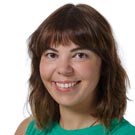
Die Forschungsgruppe um Francesca Ferlaino beschäftigt sich mit dipolaren Quantenphänomenen, wofür sie stark magnetische Atomspezies verwendet. So konnte die Gruppe im Jahr 2012 das erste... Read more …
Grimm Lab - Ultrakalte Atome und Quantengase
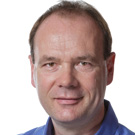
Die Arbeitsgruppe unter der Leitung von Rudolf Grimm untersucht ultrakalte Teilchensysteme, bestehend aus optisch gespeicherten Quantengasen sehr nahe am absoluten Nullpunkt. Solche Systeme... Read more …
Hammerer Group - Quantenoptik und Quantenmetrologie

Die Arbeitsgruppe Hammerer forscht im Bereich der Theoretischen Quantenoptik mit besonderem Fokus auf Quantenmetrologie und Präzisionsmessung. Wir untersuchen physikalische Systeme, die auf der... Read more …
Kirchmair Lab - Supraleitende Quantenschaltkreise
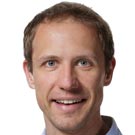
Die Forschungsgruppe um Gerhard Kirchmair arbeitet an supraleitenden Schaltkreisen und deren Anwendung in der Quanteninformationsverarbeitung und Quantensimulation. Die quantenmechanischen... Read more …
Pichler Group - Quantum Science Theory
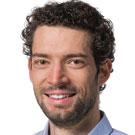
Die Forschungsgruppe unter der Leitung von Hannes Pichler beschäftigt sich mit quantenoptischen Systemen, Quanten-Vielteilchenphysik und Quanteninformation. Ziel der Gruppe ist es, die theoretischen Grundlagen... Read more …
Emeritus Forschungsgruppen
Blatt Lab - Quantenoptik und Spektroskopie

Die Forschungsgruppe um Rainer Blatt untersucht quantenphysikalische Prozesse an Ionen, die in Ionenfallen gespeichert sind. Ziel der Experimente ist es, eine möglichst vollständige Kontrolle über... Read more …
Zoller Group - Quantenoptik und Quanteninformation
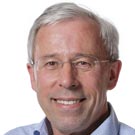
Peter Zoller's Forschungsarbeiten sind auf den Gebieten der theoretischen Quantenoptik und Atomphysik, der Quanteninformation und der Theorie kondensierter Materie angesiedelt. Im Vordergrund steht... Read more …
Aktuellste Preprints
U(1) lattice gauge theory and string roughening on a triangular Rydberg array
Abstract
arXiv:2602.06123
Lattice gauge theories (LGTs) describe fundamental interactions in particle physics. A central phenomenon in these theories is confinement, which binds quarks and antiquarks into hadrons through the formation of string-like flux tubes of gauge fields. Simulating confinement dynamics is a challenging task, but recent advances in quantum simulation are enabling the exploration of LGTs in regimes beyond the reach of classical computation. For analog devices, a major difficulty is the realization of strong plaquette interactions, which generate string fluctuations that can drive a roughening transition. Understanding string roughening -- where strong transversal functions lead to an effective restoration of translational symmetry at long distances -- is of central importance in the study of confinement. In this work, we show that string roughening emerges naturally in an analog Rydberg quantum simulator. We first map a triangular Rydberg array onto a (2+1)D U(1) LGT where plaquette terms appear as first-order processes. We study flux strings connecting static charges and demonstrate that, near a deconfined quantum critical point, the string exhibits logarithmic growth of its transverse width as the separation between charges increases, along with the universal Lüscher correction to the confining potential -- both signatures of string roughening. Finally, we investigate the real-time dynamics of an initially rigid string, observing large fluctuations after quenching into the roughening regime, as well as string breaking via particle-pair creation. Our results indicate that rough strings can be realized in experimentally accessible quantum simulators, opening the door to detailed studies of how strong fluctuations influence string-breaking dynamics.
Robust certification of non-projective measurements: theory and experiment
Abstract
arXiv:2511.04446
Determining the conditions under which positive operator-valued measures (POVMs), the most general class of quantum measurements, outperform projective measurements remains a challenging and largely unresolved problem. Of particular interest are projectively simulable POVMs, which can be realized through probabilistic mixtures of projective measurements, and therefore offer no advantage over projective schemes. Characterizing the boundary between simulable and non-simulable POVMs is, however, a difficult task, and existing tools either fail to scale efficiently, provide limited experimental feasibility or work only for specific POVMs. Here, we introduce and demonstrate a general method to certify non-simulability of a POVM by introducing a hierarchy of semidefinite programs. It provides upper bounds on the non-simulability measure of critical visibility of arbitrary POVMs which are tight in many cases and outperform previously known criteria. We experimentally certify the non-simulability of two- and three-dimensional POVMs using a trapped-ion qudit quantum processor by constructing non-simulability witnesses and introduce a modification of our framework that makes them robust against state preparation errors. Finally, we extend our results to the setting where an additional ancilla system is available.
Inverse Quantum Simulation for Quantum Material Design
Abstract
arXiv:2601.12239
Quantum simulation provides a powerful route for exploring many-body phenomena beyond the capabilities of classical computation. Existing approaches typically proceed in the forward direction: a model Hamiltonian is specified, implemented on a programmable quantum platform, and its phase diagram and properties are explored. Here we present a quantum algorithmic framework for inverse quantum simulation, enabling quantum material design with desired properties. Target material characteristics are encoded as a cost function, which is minimized on quantum hardware to prepare a many-body state with the desired properties in quantum memory. Hamiltonian learning is then used to reconstruct a low-energy Hamiltonian for which this state is an approximate ground state, yielding a physically interpretable model that can guide experimental synthesis. As illustrative applications, we outline how the method can be used to search for high-temperature superconductors within the fermionic Hubbard model, enhancing -wave correlations over a broad range of dopings and temperatures, design quantum phases by stabilizing a topological order through continuous Hamiltonian modifications, and optimize dynamical properties relevant for photochemistry and frequency- and momentum-resolved condensed-matter data. These results extend the scope of quantum simulators from exploring quantum many-body systems to designing and discovering new quantum materials.
Observation of Fano-suppression in scattering resonances of bosonic erbium atoms
Abstract
The collisional properties of lanthanides exhibit remarkable complexity due to their many valence electrons, leading to an extraordinarily dense Feshbach spectrum showing signs of quantum chaos. Here we explore the situation of bosonic spin mixtures of erbium, adding the additional spin degree of freedom to the problem. We detect several inter- and intra-spin scattering resonances, exhibiting a peculiar asymmetric shape with a pronounced loss minimum. By developing a simplified multi-channel model we are able to recreate this characteristic behavior and to trace its origin to destructive interference between multiple pathways as predicted by Fano. We additionally observe a series of Fano-Feshbach resonances across multiple spin channels connected to the same molecular state, again confirmed by our theory. Our work opens the door for a detailed investigation to study multi-spin strongly-coupled scattering phenomena.
Engineering discrete local dynamics in globally driven dual-species atom arrays
Abstract
arXiv:2601.16961
We introduce a method for engineering discrete local dynamics in globally-driven dual-species neutral atom experiments, allowing us to study emergent digital models through uniform analog controls. Leveraging the new opportunities offered by dual-species systems, such as species-alternated driving, our construction exploits simple Floquet protocols on static atom arrangements, and benefits of generalized blockade regimes (different inter- and intra-species interactions). We focus on discrete dynamical models that are special examples of Quantum Cellular Automata (QCA), and explicitly consider a number of relevant examples, including the kicked-Ising model, the Floquet Kitaev honeycomb model, and the digitization of generic translation-invariant nearest-neighbor Hamiltonians (e.g., for Trotterized evolution). As an application, we study chaotic features of discretized many-body dynamics that can be detected by leveraging only demonstrated capabilities of globally-driven experiments, and benchmark their ability to discriminate chaotic evolution.
Bounded-Error Quantum Simulation via Hamiltonian and Lindbladian Learning
Abstract
arXiv:2511.23392
Analog Quantum Simulators offer a route to exploring strongly correlated many-body dynamics beyond classical computation, but their predictive power remains limited by the absence of quantitative error estimation. Establishing rigorous uncertainty bounds is essential for elevating such devices from qualitative demonstrations to quantitative scientific tools. Here we introduce a general framework for bounded-error quantum simulation, which provides predictions for many-body observables with experimentally quantifiable uncertainties. The approach combines Hamiltonian and Lindbladian Learning--a statistically rigorous inference of the coherent and dissipative generators governing the dynamics--with the propagation of their uncertainties into the simulated observables, yielding confidence bounds directly derived from experimental data. We demonstrate this framework on trapped-ion quantum simulators implementing long-range Ising interactions with up to 51 ions, and validate it where classical comparison is possible. We analyze error bounds on two levels. First, we learn an open-system model from experimental data collected in an initial time window of quench dynamics, simulate the corresponding master equation, and quantitatively verify consistency between theoretical predictions and measured dynamics at long times. Second, we establish error bounds directly from experimental measurements alone, without relying on classical simulation--crucial for entering regimes of quantum advantage. The learned models reproduce the experimental evolution within the predicted bounds, demonstrating quantitative reliability and internal consistency. Bounded-error quantum simulation provides a scalable foundation for trusted analog quantum computation, bridging the gap between experimental platforms and predictive many-body physics. The techniques presented here directly extend to digital quantum simulation.



